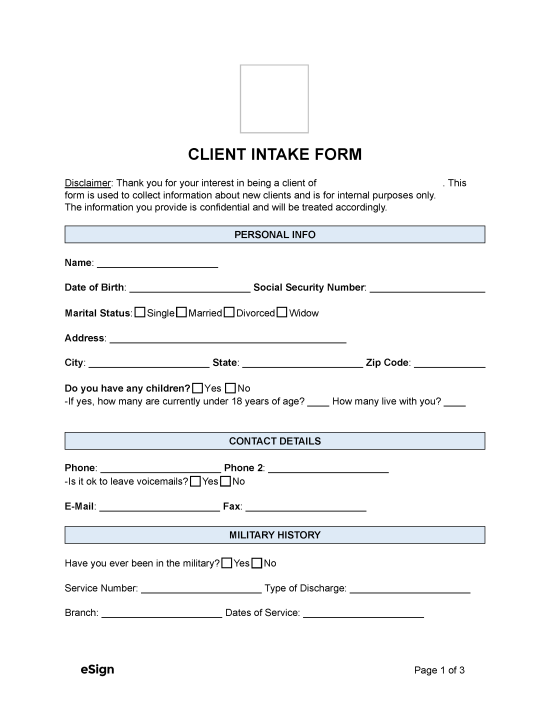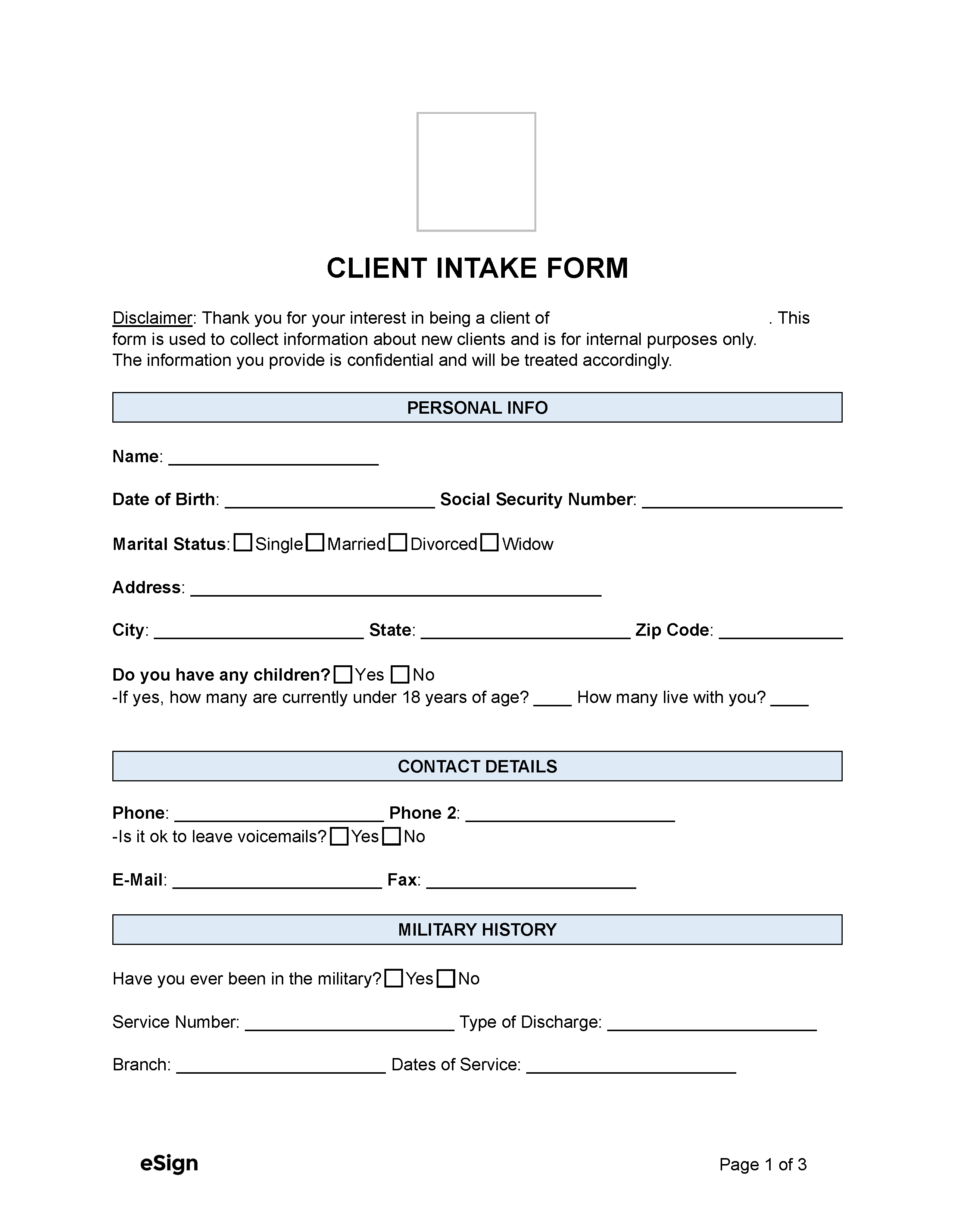Confidentiality
While a client intake form does not establish an attorney-client relationship, the information provided by the client is considered confidential and cannot be disclosed without their consent.
Client Intake Form vs. Engagement Letter
Client Intake FormAttorney intake forms are often the first documents provided to potential clients. The document provides the attorney with an overview of the client, including their personal information and the legal issues they are hoping to resolve.
Engagement Letter
If the attorney agrees to work with the client, an engagement letter or retainer agreement will be presented to them. These documents allow the parties to enter into a formal attorney-client relationship. The document relays the parties’ obligations, the fee arrangement, and the scope of the attorney’s legal services.
What’s Included
To provide a proper consultation, an attorney will need the client to complete the sections of the intake form truthfully and as thoroughly as possible.
The form should contain the following.
- Personal Information – The client’s name, address, DOB, and marital status.
- Communication Preferences – The client will need to include their phone number, email address, and preferred contact method.
- Employment and Education Information – The client’s current employer and educational background.
- Legal Matter – A description of the client’s current legal issue, including relevant dates, involved parties, and any other related facts.
- Prior Representation – Any other attorney the client has engaged or consulted with.
- Attorney-Client Relationship – A statement that the intake form doesn’t create an attorney-client relationship.
- Confidentiality – The form should state that any information provided is confidential and protected.
Initial Consultation
After the attorney has reviewed the completed intake form, they will check to make sure there are no conflicts of interest. If there aren’t any, and the attorney is willing to take on the new client, they will likely schedule a consultation.
At the initial consultation, the attorney will ask more detailed questions about the legal matter. Assuming the attorney agrees to take the case, they will enter into a legal agreement with the client to formalize the attorney-client relationship.

